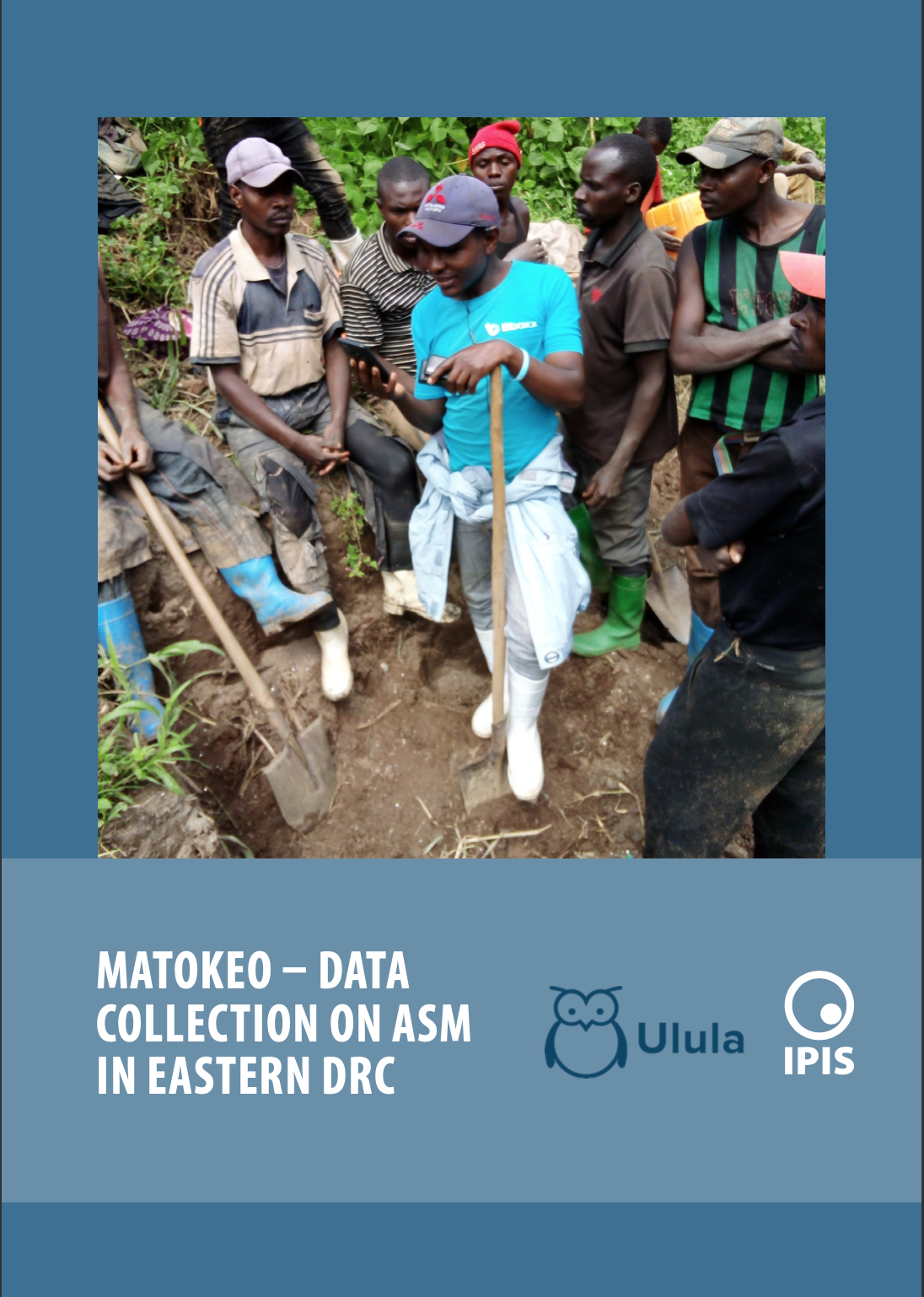‘Matokeo’ (meaning ‘impact’ in Swahili) is a data-driven platform operating in the Democratic Republic of Congo (DRC) with the ability to reach last mile artisanal miners, enabling them to ping the latest international price of gold. Conceptualized by Ulula and the International Peace Information Service (IPIS), the project won a Conservation X grant in October 2020 for its ability to remotely collect data about mercury-use, deforestation, child labor and security issues. Using Ulula’s system of two-way mobile based engagement, Matokeo enabled a more continuous impact data collection through automated mobile surveys focusing on the above-mentioned indicators.
Since 2018, IPIS and Ulula developed a mobile-based incident reporting mechanism called ‘Kufatilia’ (which means ‘to track’ in Swahili). By sending the key word ‘Kufatilia’ to the +243 8 50 29 12 51 (Orange), +243 8 24 44 33 91 (Vodacom), +243 9 74 72 91 00 (Airtel) or +1 647 503 3558 (WhatsApp) from a Congolese telephone line, anyone can report an incident linked to the exploitation, transport or export of minerals. The incidents are then visible in a secured online-platform to a network of 20+ Civil Society Organisations (CSOs) active in Eastern DRC.
In 2020, the Conservation X grant allowed Ulula and IPIS to develop the second stage of this data platform, by introducing the keyword ‘Matokeo’. Conceived both as a way to increase user participation and to remotely collect data on the impact of artisanal mining on local communities in Eastern DRC, Matokeo was built with three components:
• Price Ping
• IVR automated surveys
• Broadcast messages
The entire program is available in three languages – Swahili, Lingala and French. Participants can select their preferred language during the surveys and their choice is remembered by the platform.
PRICE PING
By sending ‘Matokeo’ to the same phone number as Kufatilia, anyone can automatically receive the international price of the day for one gramme of gold on the international market. Based on previous research, IPIS estimates that the price of artisanal gold at the mining sites varies between 70 to 80% compared to the international price. Those variations can be explained by the varying purity of artisanal gold but also the distance of the mining sites to the main selling points or the presence of illegal taxation and other factors.
Providing the daily price of one gramme of gold on the international market can support the mining communities in negotiating the price of gold locally, taking into account the important variations that can occur over time. This is supported by the work done locally by the network of 20+ CSOs active in the Kufatilia network in disseminating the Kufatilia/Matokeo phone numbers and training cooperatives and mining communities in the importance of incident-reporting and formalization of the artisanal mining sector.
To date, the gold price ping was consulted 2,649 times by 421 unique participants who sent ‘Matokeo’ at least once.
IVR AUTOMATED SURVEYS
Using the two-way mobile based engagement platform conceived by Ulula, IPIS and Ulula have carried out Interactive Voice Response (IVR) phone surveys. Those pre-recorded surveys are conducted by automatically calling participants that interacted at least once with Kufatilia/Matokeo.
To date, the Kufatilia/Matokeo platform has aggregated a total of 1,369 different phone numbers that engaged at least once with the platform. By sending out IVR automated surveys to this database of phone numbers, Ulula and IPIS have remotely collected data around the impact of artisanal mining on key social, environmental and human rights indicators in Eastern DRC.
Out of the 1,369 phone numbers, about 500 are actively engaged with the project (536 unique participants filled at least one Kufatilia incident report and 421 unique participants consulted the price ping by sending Matokeo at least once). Of those, the IVR automated survey was able to collect 205 complete responses which will be detailed below.
BROADCAST MESSAGES
To support the work of our partner CSOs that are conducting both dissemination of Kufatilia/Matokeo as well as incident follow-up activities in Eastern DRC, and to keep the engagement with the important network of 500+ active informants, Ulula and IPIS are also using the Kufatilia/Matokeo system to push broadcast messages. Those messages (short SMS) were drafted through participatory workshops with the network of 20+ CSOs. For now, about 30 different SMS broadcast messages were drafted and translated in French, Swahili and Lingala.
Broadcast messages include awareness-raising about Covid-19, mercury use, deforestation, child labor. They also include prevention messages against illegal taxation, fraud, and gender inequality. Those broadcast messages are currently being sent every two weeks to the database of 1,369 phone numbers.


